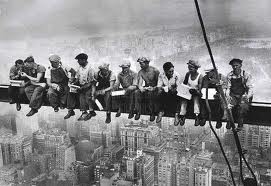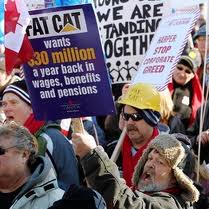
 847-995-1205
847-995-1205
Recent Blog Posts
Veteran Police Officer Sues City of Elgin
 Workers have the protection of local, state and federal laws outlawing discrimination in the workplace. That covers any protected status such as race, age, physical ability, sexual orientation, religious beliefs and others. There are different ways that discrimination can be noticed. Discrimination can be present in many aspects of work, including the hiring and firing process, promotions, work assignments and compensation.
Workers have the protection of local, state and federal laws outlawing discrimination in the workplace. That covers any protected status such as race, age, physical ability, sexual orientation, religious beliefs and others. There are different ways that discrimination can be noticed. Discrimination can be present in many aspects of work, including the hiring and firing process, promotions, work assignments and compensation.
Most recently, a 16 year veteran of the Elgin police department has initiated legal action against his employer and two coworkers. Phillipp D. Brown claimed in his federal lawsuit that there is a racist culture which exists in his workplace. There was no discipline for the use of racial slurs, black officers were disenfranchised, and the Ku Klux Klan was celebrated according to the claimant. Brown has also said that his complaints against discrimination resulted in being passed over for career opportunities.
Peoria ranked third in high tech employment growth
 A recent study listed Peoria as third on a list of the top 25 metros for high-tech employment growth from 2010-2011.
A recent study listed Peoria as third on a list of the top 25 metros for high-tech employment growth from 2010-2011.
A San Francisco-based nonprofit Engine commissioned the Bay Area Council Economic Institution to analyze U.S. Bureau of Labor statistics data and to identify communities around the country that have experienced noticeable job growth in the tech-sector.
Grant Brewen, CEO of Peoria NEXT, the high-tech collaborative formed 11 years ago, said “When we talk about technology in the greater Peoria region, many people groan as if the words, ‘technology,' and ‘Peoria,” don't belong in the same sentence, but that couldn't be farther from the truth.”
At his office in the Peoria NEXT Innovation Center, 801 W. Main St., the business incubatory that opened in 2007, Brewen also added that, “This region has an amazing amount of technology and research activities happening, and every day more and more ideas are put to the test.” He said that the area has “always been known as a manufacturing and agriculture focused region, and the area had to accept the notion that it could also embrace technology commercialization.”
The Illinois Equal Pay Act
 The Illinois Equal Pay Act, according to the Illinois Department of Labor, “prohibits employers with four or more employees from paying unequal wages to men and women for doing the same or substantially similar work.” The only provision to the law is if the wage difference is based upon a merit, seniority system, or a system measuring earnings by factors other than gender. Any employers found to be in violation of this law are not only responsible to make up the wage difference, but are also subject to civil fines and the payment of legal costs. The law was passed in 2003 and went into effect on January 1, 2004.
The Illinois Equal Pay Act, according to the Illinois Department of Labor, “prohibits employers with four or more employees from paying unequal wages to men and women for doing the same or substantially similar work.” The only provision to the law is if the wage difference is based upon a merit, seniority system, or a system measuring earnings by factors other than gender. Any employers found to be in violation of this law are not only responsible to make up the wage difference, but are also subject to civil fines and the payment of legal costs. The law was passed in 2003 and went into effect on January 1, 2004.
If you feel that you may be eligible for compensation because of unequal pay practices, the first step is to contact an experienced Illinois fair labor attorney. It's a complicated process, and the money you save by not hiring an attorney could be lost in compensation. Official documents can and should, however, be perused first and can be found here. Complaints can also be registered with the Illinois Department of Human Rights.
New Illinois law prevents employer access to social media account
 Some employers have started requiring employees and applicants to provide passwords or otherwise full access to their social media accounts due to the increasing popularity of social media sites such as Twitter and Facebook. The Illinois Legislature has recently put a stop to this practice.
Some employers have started requiring employees and applicants to provide passwords or otherwise full access to their social media accounts due to the increasing popularity of social media sites such as Twitter and Facebook. The Illinois Legislature has recently put a stop to this practice.
Illinois amended the Right to Privacy in the Workplace Act on August 1. It now prevents employers from demanding access to employees' and job applicants' social media accounts. The addition to the law will go into effect January 1, 2013.
Employers will be prohibited from requesting or requiring passwords or any other related private account information in order to gain access to personal accounts from employees and applicants. Employers are also not permitted to access social media accounts for any reason, including work-related investigations of misconduct, harassment, or any other legitimate business reason. The law has no exceptions.
Unemployment Rates Down
 According to Chicago Business, unemployment in the United States is down to a seven-year low. The rate fell from 7.9% in October to 7.7% lower in the last four years. This drop in the unemployment rate was seen as a perceived improvement in the economy.
According to Chicago Business, unemployment in the United States is down to a seven-year low. The rate fell from 7.9% in October to 7.7% lower in the last four years. This drop in the unemployment rate was seen as a perceived improvement in the economy.
Companies added 146,000 jobs which contributed to the lowering of the unemployment rate. The government has even stated that the super storm Sandy did not have any effect on the figures. These job gains were very similar to the increase that happened last year at the same time. Many believe this increase in jobs occurred because of increased retail jobs for the Christmas season.
An economist at Global Insight believes the market is not improving rapidly but that is also good news. The reason it's good news is because there is still growth despite many fears that job hunters and employers may have. There are some discouraging signs in some of the numbers because many believe that some of the unemployed may not be looking for employment at this time. This causes the numbers to be incorrect and there may be more people who need work that don't have it.
Hundreds of Wal-Mart Stores See Workers Strike
 "Stand up. Live better" was the mantra heard throughout the nation this holiday weekend as thousands of Wal-Mart workers staged a strike. The walkout hit hundreds of cities on Black Friday, traditionally regarded as the busiest shopping day of the year. OUR Walmart the worker organization that is coordinating the protests is being backed by the United Food and Commercial Workers Union.
"Stand up. Live better" was the mantra heard throughout the nation this holiday weekend as thousands of Wal-Mart workers staged a strike. The walkout hit hundreds of cities on Black Friday, traditionally regarded as the busiest shopping day of the year. OUR Walmart the worker organization that is coordinating the protests is being backed by the United Food and Commercial Workers Union.
At issue for the workers is what they call Wal-Mart's retaliation against speaking out for better pay, fair schedules and affordable health care. Such retaliation can include shuffling around their shifts, cutting hours and moving them around departments. Currently, Wal-Mart employees start at $7.53 minimum wage. It is well-documented that many Wal-Mart employees need to file for public assistance, such as food stamps, in order to supplement their low income. The low wages of their workers has been compared to the salary of the company's CEO. A report on ABC News placed CEO Michael Duke's at $35 million per year.
Employee Strike at Caterpillar Plant Finally Over
From the beginning of May till the middle of August, the employees at the Joliet Caterpillar plant have been on strike for leverage in a deal that was being sought by Caterpillar. Over 750 workers decided to go on strike based on Caterpillar's demand to freeze pay increases among other things. The pay freeze was set to affect nearly two-thirds of the factory workers for the duration of six years.
The major claim on the side of the workers is that Caterpillar has been chronicling record profits as it was asking for major concessions from its workers. The company has claimed that the factory's top-tier workers earn substantially more than their peers in the marketplace. On average, the top-tier workers earn $26 per hour while the lower-tiers earn in the range of $12 to $19 per hour. In an effort to remain competitive, they were asking for these concessions.
Legal Responsibility for a Hostile Work Environment
Every person has experienced a time when they didn't want to go to work. Sometimes those feelings are even stronger and people hate their jobs. This can be due to a variety of factors but there is one in particular that employers should avoid, which is a hostile work environment. So what constitutes a hostile work environment?

A hostile work environment is when an employee experiences harassment or discrimination to a point that makes them subsequently afraid or stressed about going to work. The harassment is not considered to be occasional off-hand remarks, simple teasing, or other similar actions. Rather, to be considered a hostile work environment, there must be evidence of objectively offensive conduct on a semi-regular basis. Prime examples of such behavior include physical threats, lewd jokes, and inappropriate touching, but can also include comments that concern age, gender, race, physical ability, or mental competence. This harassment may come from anyone at work, such as the employer, managers, co-workers and even clients. But when is the employer liable for the experience of a hostile work environment?
The FLSA and Protecting your Business
 The Fair Labor Standards Act was enacted in 1938 by a Senator named Hugo Black. He struggled for nearly 6 years to afford certain legal rights to workers in America. After making some changes to his original guidelines about a 30 hour workweek and other rules, he gradually came to a compromise that was accepted by Congress and made into a law. So what are the legal requirements of the Fair Labor Standards Act? It set out to, primarily, do the following:
The Fair Labor Standards Act was enacted in 1938 by a Senator named Hugo Black. He struggled for nearly 6 years to afford certain legal rights to workers in America. After making some changes to his original guidelines about a 30 hour workweek and other rules, he gradually came to a compromise that was accepted by Congress and made into a law. So what are the legal requirements of the Fair Labor Standards Act? It set out to, primarily, do the following:
- Establish a national standard for minimum wage.
- Protect young children from dangerous work.
- Institute a maximum 40 hour work week, with overtime pay.
The goal of the act was the “elimination of labor conditions detrimental to the maintenance of the minimum standards of living necessary for health, efficiency and well-being of workers,” according to its original language. This served another purpose which kept people working and stopped them from striking due to poor working conditions. In another effort to level the playing field between all kinds of people, the FLSA was amended in 1963 to require equal pay for equal work. This required women to receive the same wages as men who held the same position.
Contact Us


Schaumburg, IL 60173
Phone: 847-995-1205

